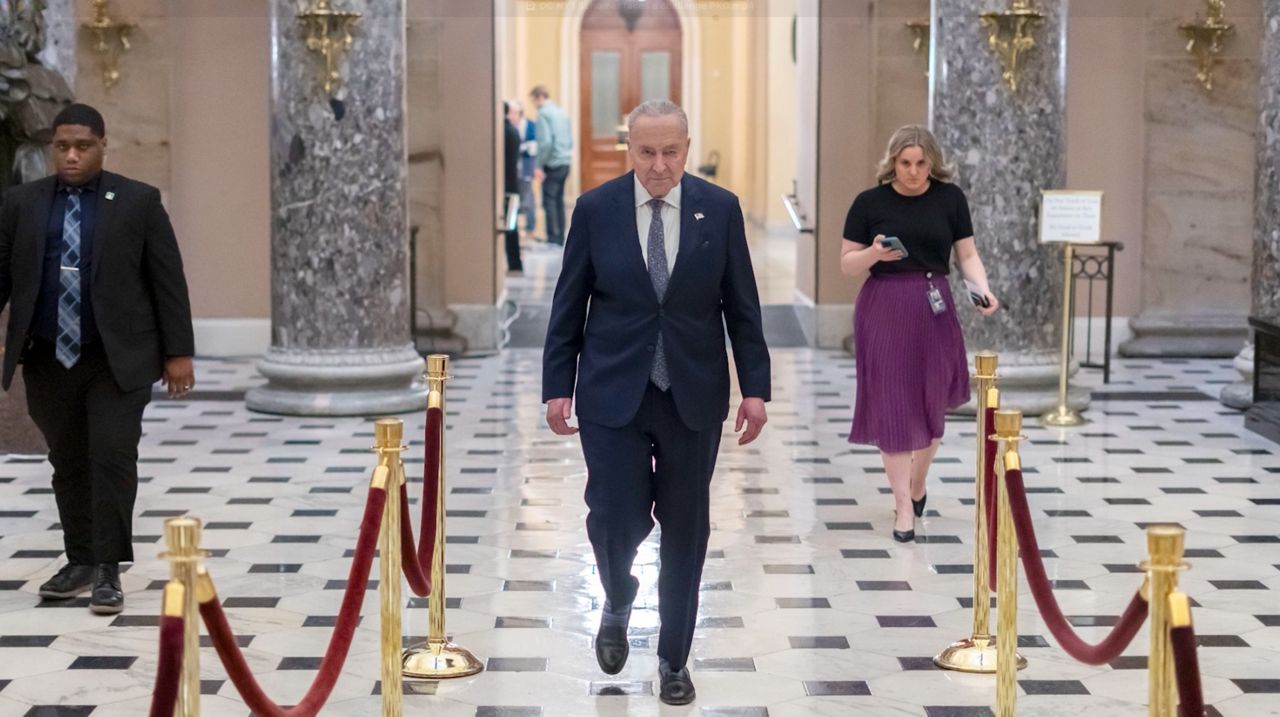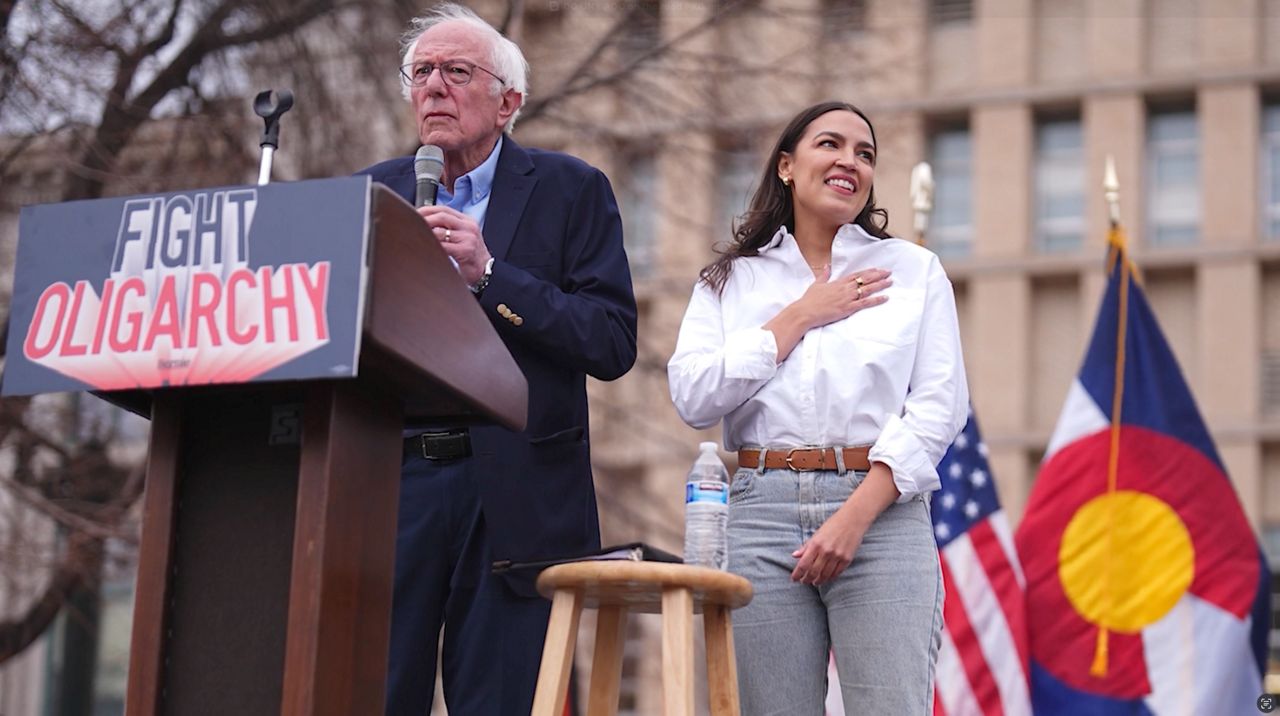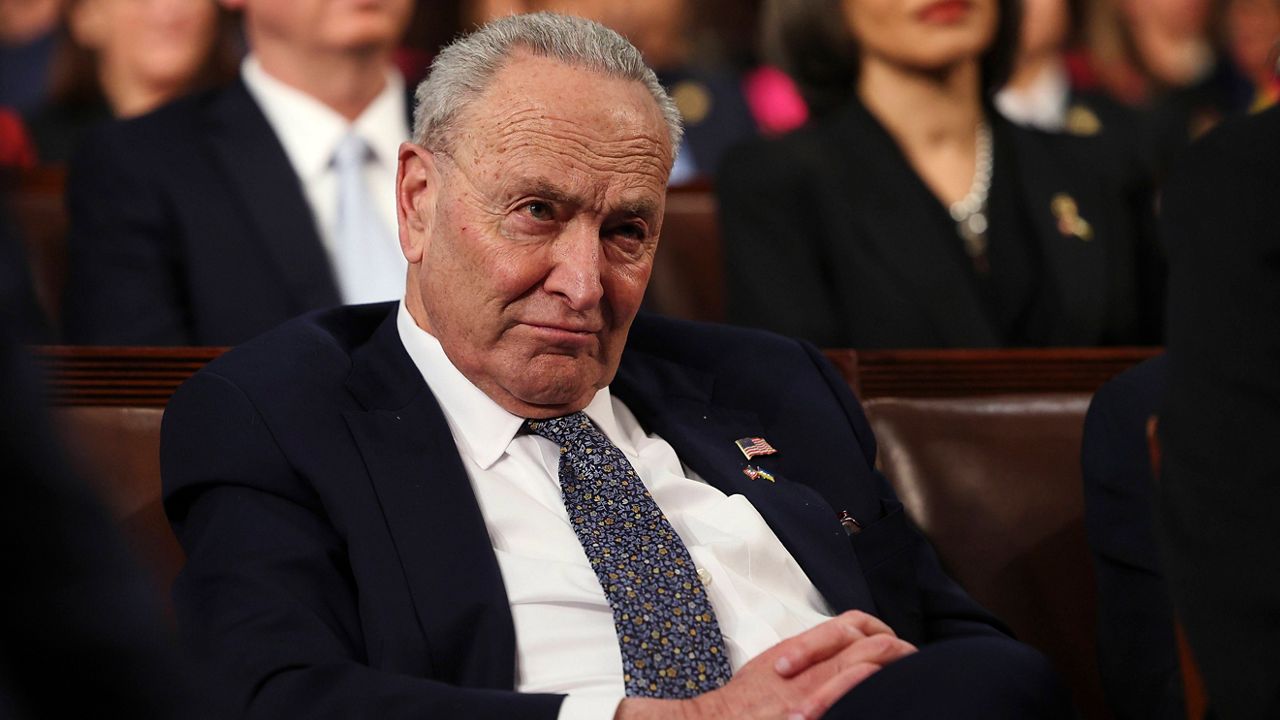As elected officials like New York City Mayor Eric Adams and CEOs like Elon Musk request or even demand that workers return to their offices now that the pandemic is easing, lawmakers on Capitol Hill still have a tool to avoid showing up in person.
So-called proxy voting allows members of the U.S. House of Representatives to designate other lawmakers to vote on their behalf.
And New Yorkers in Congress continue to make use of it.
The most prolific proxy voter in the New York delegation is Rep. Tom Suozzi.
In April, an analysis by Spectrum News NY1 revealed that Suozzi was popping up on the campaign trail in his bid for governor of New York, while proxy voting. Of the 125 roll call votes cast in the House between Jan. 10 and April 7, Suozzi voted by proxy 118 times
NY1 has since dug through the records of the House votes since then, and found that Suozzi continues to make extensive use of proxy voting.
Of the 107 roll calls votes in the House since April 26, Suozzi voted by proxy 106 times. Social media posts again show him at times appearing at campaign events.
Proxy voting started when the pandemic erupted, allowing lawmakers to limit potential exposure to the coronavirus. Members submit letters saying they cannot vote in person “due to the ongoing public health emergency.”
In a statement, a spokesperson for Suozzi said he "continues to take every vote and handle issues impacting his constituents while he campaigns for governor of New York.”
But Suozzi is not the only frequent proxy voter in the New York delegation.
Since the end of April, NY1’s analysis shows that Rep. Alexandria Ocasio-Cortez voted by proxy 102 times. Former Rep. Antonio Delgado did so 91 times. And Reps. Jamaal Bowman and Brian Higgins voted by proxy 64 and 46 times, respectively.
So where were those other New York lawmakers when they were voting proxy?
Ocasio-Cortez’s office says she was on non-COVID medical leave. Delgado stopped voting in person after he was selected to be lieutenant governor of New York. Bowman’s team said his wife had COVID and he was isolating.
And Higgins’ did not vote in person in the days after the Buffalo mass shooting, which took place in his district.
He "has been in the community to be with victims and their families, to support outreach efforts, and to attend funerals and community gatherings," a Higgins spokesperson said in a statement.
Some — mainly Republicans — have questioned whether proxy voting should continue, arguing the House should “re-open” for business. That said, many Republicans have also made use of the practice.
Former Republican Congressman Tom Reed, who retired earlier this spring, used proxy voting when he was a member of the House, and he admits it was not always necessarily for COVID-related matters.
He said in his experience, being present on the House floor during votes is important, since it is a chance to meet with colleagues. However, he says there is a place for proxy voting - particularly during emergencies back home in the district.
“It allowed me to participate and still be a voice. That's why I think proxy voting needs to stay and allow for those circumstances to be taken care of,” he said. “But at the same time, it can't be abused.”
Reed says proxy voting needs reforms. The important thing, he argues, is members be honest with their constituents about why they cannot be in D.C.
Spectrum News producer Sam Lisker contributed data analysis to this report.









